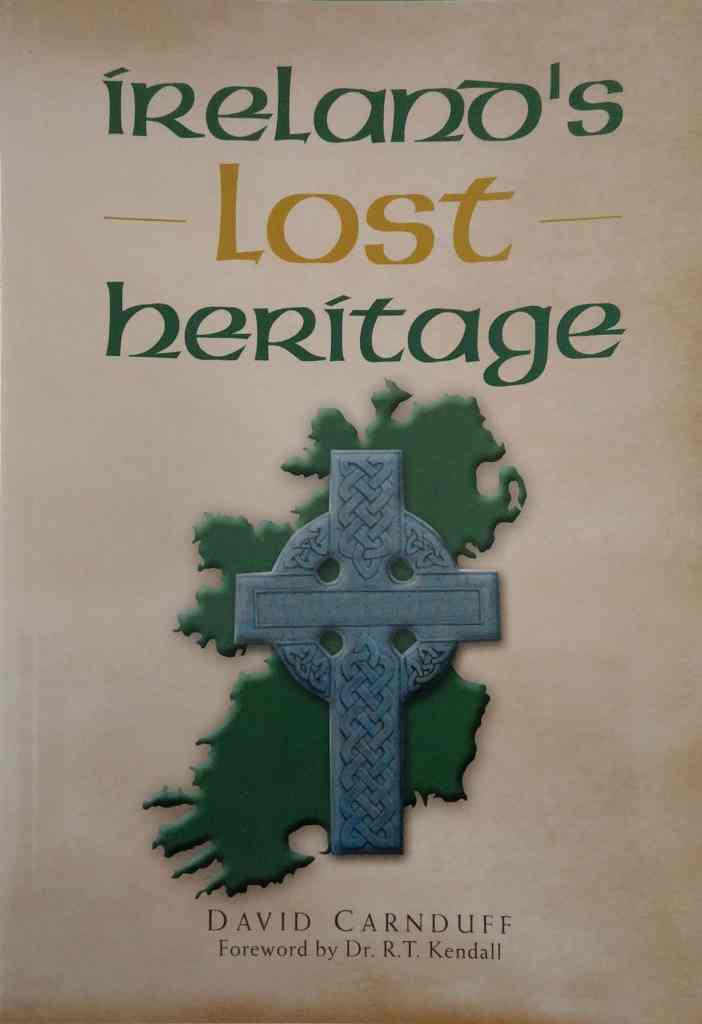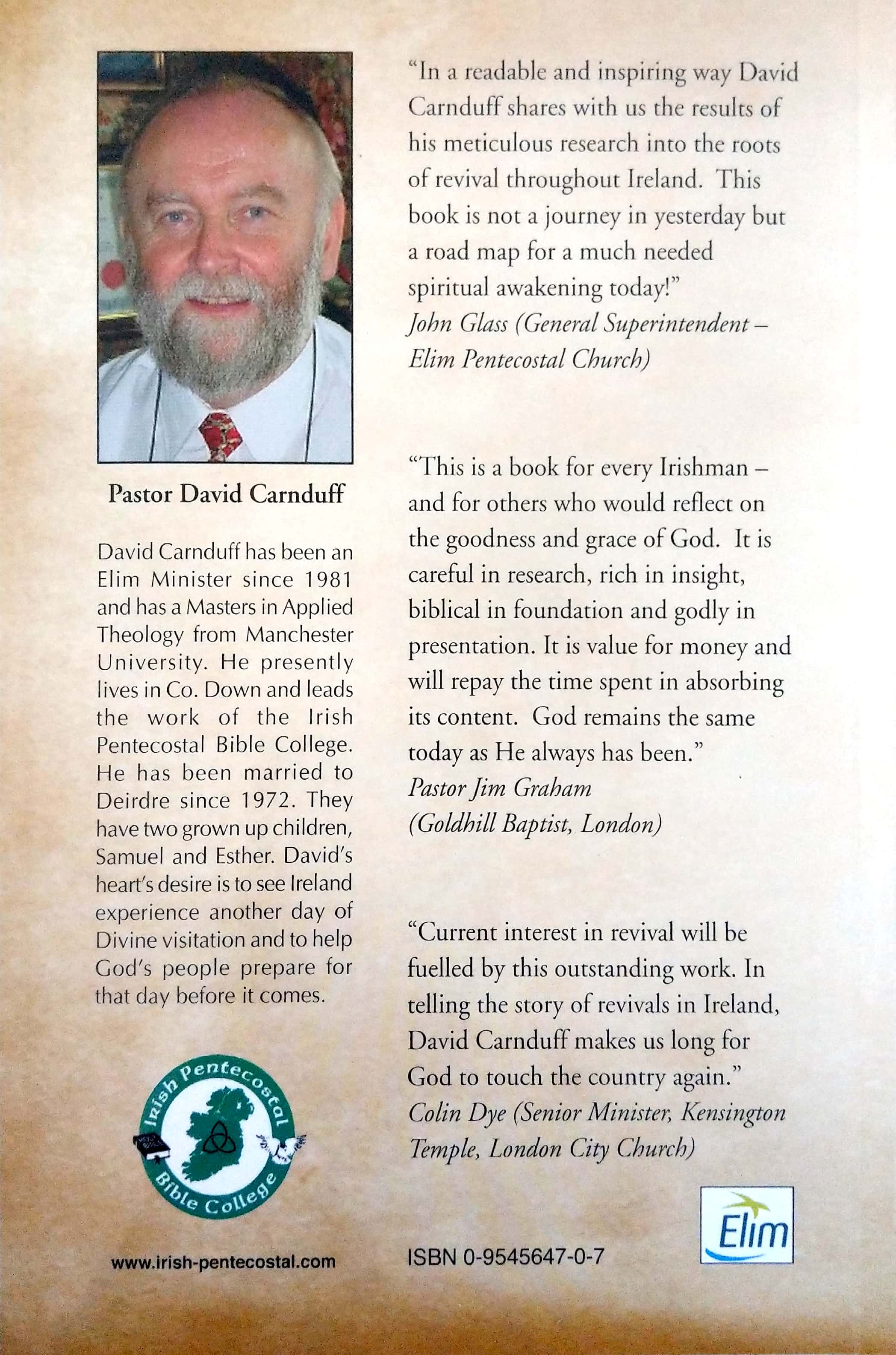

Foreword by Dr.R.T.Kendall
(Former Minister of Westminster Chapel, London)
This wonderful and timely book fills a gap in Irish Church History that will make all who read it indebted and thankful to its author. Pastor David Carnduff has done the work of a pioneer, moving in a direction nobody has ventured. No one will doubt the truth or factual information of this monograph, not merely because it is carefully footnoted but because the author’s integrity is mediated transparently on every page. I feel honoured to be asked to write this Foreword and blessed to have read this book.
Most of us who are theologians tell more about ourselves than we do the subject, when we try to be historians. Someone observed that Paul Tillich’s work in church history tells you more about Tillich than it does the history he purported to unfold. I am sure this is true of much of my own work but Pastor Carnduff is up front at the beginning by telling us this historical picture is painted from a Pentecostal perspective. And yet what is brought to bear in the pages that follow will pass the test of any unbiased judge.
There is a theological issue that underlies this important volume. It is called ‘cessationism’ – the view that signs, wonders, miracles and gifts of the spirit ‘ceased’ after the early days of Christianity. The view of the proponents of cessationism is that, once the canon of Scripture closed – and we now have the complete Bible at our fingertips – no need for the miraculous survives; as mature believers we neither expect nor need any more.
Wrong! As Philip the evangelist heard the Lord speaking directly to him to go immediately to the desert road that leads from Jerusalem to Gaza (Acts 8:26), so God is pleased to deal familiarly and intimately with his people today. He did so before the closing of the canon of Scripture and has done so since. Pastor Carnduff demonstrates effortlessly and persuasively that this manner of the Lord’s dealings characterized the founding and flourishing of Christianity in Ireland, beginning with Patrick himself. No unprejudiced cessationist will feel comfortable holding on to this point of view after reading this documented, scholarly book.
I have been saying for a long time that there has been a silent divorce between the Word and the Spirit, speaking generally, in the church today. When there is a divorce, some children stay with the mother, some with the father. In this divorce you have those on the ‘Word’ side (stressing the need for sound doctrine, expository preaching and contending for the faith once delivered unto the saints); and also those on the ‘Spirit’ side (stressing the gifts of the Spirit, the prophetic and the miraculous). Both emphases are exactly right and what is sorely needed at the present time. But it is not one or the other but both – simultaneously – that is needed and which, in my opinion, will restore the honour of God’s name on both sides of the Atlantic.
This book will help bridge the gap between the Word and the Spirit, between the mind and the heart, between doctrine and experience. Every Christian and church leader should read this book, not merely those from Ireland. It will not only open many eyes, but also produce a warmth and openness to the truth that could change one’s life. Patrick may have thought that Ireland – which he saw as the ‘uttermost part’ of the earth at the time – was the last place to be evangelised before our Lord’s Second Coming. But what if he turns out to be right in a sense, that Christians in Ireland have an opportunity to rediscover their beginnings and get to know the sovereign Redeemer in these last days before that Second Coming. This book is written in such a way that this could happen.
R.T.Kendall
Key Largo,Florida
January 2003

